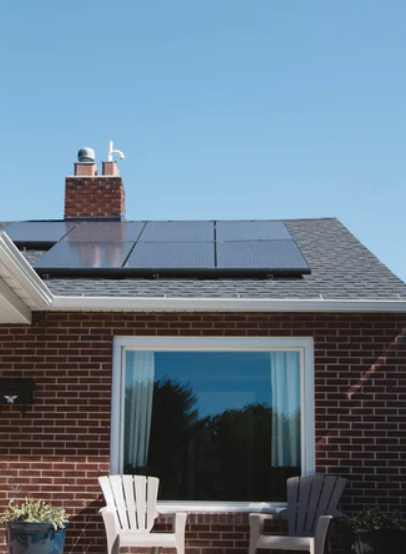
The CEA Blog
The Road to 100 Percent Renewables is Closer Than You Think
Conventional ways of thinking of renewable energy as too expensive or unreliable are old and outdated, according to Renewables 100, a nonprofit organization founded to study and advance the global transition to a 100 percent renewable energy future.
The “Dazzling Dozen” Lead the Way in Solar Installation
The “Dazzling Dozen” is not just a clever name for the twelve states that are leading the way in solar photovoltaic installations; they are an example to be followed in the move from fossil fuels towards a renewable energy utility of the future.
Renewable Energy Generation Could Power Grid 99.9% of the Time by 2030
Could it be possible to have renewable energy sources powering a large grid system up to 99.9% of the time at costs comparable to energy rates today?
Enhanced Geothermal Systems Promise Dispatchable Zero Carbon Power
Geothermal energy is the Earth’s own internal heat. It’s a huge potential resource, but so far it’s seen only very limited use. Traditional geothermal power can only work where there are naturally existing hydrothermal systems that bring the heat of the interior to the surface.
ALEC Attacking Renewable Energy Standards Nationwide
The American Legislative Exchange Council (ALEC) is at it again, trying to roll back state renewable energy standards nationwide. The argument behind their model bill, entitled the Electricity Freedom Act, is that renewable energy is simply too expensive.
February 2021 PUC Update
Clean Energy Action’s Colorado Public Utility Commission updates are provided courtesy of E9 Insight. Please contact hello@e9insight.com with any additional questions.
Rate Cases: Impacts to Your Bill
20M-0251E Investigation of Electric Utility Retail Rates
On January 27, the Colorado PUC voted to send the Utility Retail Rate Report to the General Assembly, as was required by Senate Bill 19-236. The report was sent on February 1, containing a statewide electric retail rate survey; an average electric rate calculation; recommendations for rate relief; and a general description of ratemaking and utilities in Colorado. The report found that investor-owned utilities are responsible or 56% of retail electricity sold in Colorado (Xcel accounting for 53%). Average residential rates were determined to be 12.18 cents/kWh (for reference, the average EIA price in 2020 was 13.01 cents/kWh); when combined with the commercial and industrial rates, the overall statewide average was 9.95 center/kWh. Staff determined that rates more than 25% of this average should be considered “materially greater” than average, and found that Black Hills Energy has rates that are 34% above the statewide average. The PSC recommended that Black Hills open a new rate case, increase funding for its Energy Assistance Program, investigate time-of-use rates, reduce cost of debt, and/or to develop a special contract or economic development rate. In the longer term, the PUC recommended exploration of community choice energy (with appropriate guidance from the legislature), increased use of renewable resources, and taking local economies into consideration.”
Resource Planning: Your Power, Your Community
21M-0061E Clean Energy Plans
In accordance with the 2019 SB 19-236, Public Service Company of Colorado must file a Clean Energy Plan as its next Electric Resource Plan by the end of March 2021. In early February, the Colorado PUC opened a new proceeding outlining the legislative history and requirements of the Clean Energy Plan (CEP). The opening notice emphasized that the Air Quality Control Commission cannot mandate GHG emission reduction targets by 2030 more than what is required from the commission-approved CEP. Additionally, in January 2021, the state released Colorado's Greenhouse Gas Pollution Reduction Roadmap. The PUC therefore established this proceeding to enable further consultation with Colorado state agencies to engage in at least one workshop discussion regarding statutory obligations.
Business Models: Moneymaking, Programs, and Regional Impacts
19M-0495E Energy Market Analysis - Colorado Transmission Act
On January 28, the CO PUC held an informational meeting regarding western regional markets and potential benefits/costs to Colorado joining an energy imbalance market (EIM). The session reviewed three recent market studies which compared CAISO's WEIM, SPP's WEIS, business as usual, or Colorado's formation of a statewide joint dispatch agreement. Generally, the studies affirmed that the most benefits will be achieved if Colorado utilities make a singular choice, likely to join CAISO's WEIM due to the renewable energy penetration in this region.
Presentations from the conference included an Xcel powerpoint which confirmed that the utility will enter the WEIM in April 2022. According to their analysis, by 2022 the WEIM will include approximately 80% of load in the Western Interconnection, and WEIM parties are also exploring an additional day-ahead market. The presentation highlighted the benefits of RTO participation, and noted that "PSCo is interested in establishing [transmission] seams coordination agreements with SPP and the WEIS participants to ensure the efficient use of the facilities in Colorado."
20M-0267EG Implementation of SB 20-030 (Consumer Protections)
On January 28, the Colorado PUC directed Black Hills Energy to file additional information about their COVID-19-related disconnections. Black Hills reported a total oy 1,861 residential disconnections in the latter part of 2020, and the PUC stated, "We are concerned that this level of disconnections is approaching the level of disconnections BHCE undertakes in years when COVID-19 is not a factor; that it may represent a disproportionate percent of BHCE’s residential customers as compared to other utilities; and that it is unclear how long customers are disconnected before they are reconnected."
Plus, a notable news release…
On January 4 2021, Xcel Energy-Colorado and partners PacifiCorp and the Salt River Project announced plans to close the Hayden Generating Station by 2028, over eight years earlier than initially planned. The first unit will be retired by 2027, and the closure is cited as part of Xcel Energy’s plan to reduce carbon emissions by 80% by 2030.







